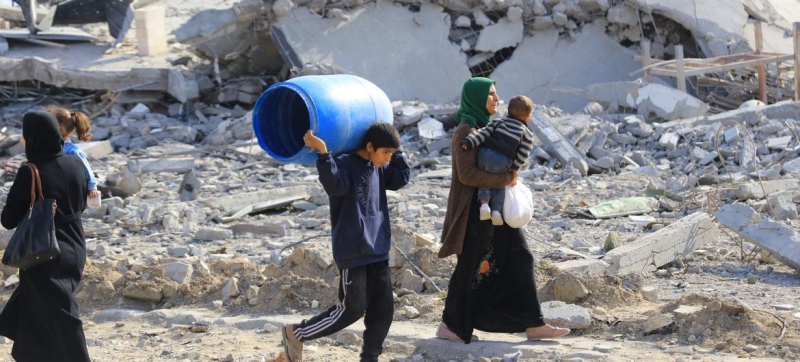
Displaced Palestinians return to their homes after Gaza ceasefire agreement. UN chief: Renewal of war in Gaza must be avoided at all costs Peace and Security
Renewal of fighting in Gaza must be prevented at all costs, UN Secretary-General Antonio Guterres said on Tuesday, amid fears that a ceasefire agreement between Hamas militants and Israel could break down.
“We must avoid at all costs a resumption of fighting in Gaza, which would lead to a huge tragedy,” the UN chief said in a statement read to reporters by UN spokesman Rolando Gomez in Geneva.
“I call on Hamas to proceed with the previously scheduled release of hostages next Saturday,” Antonio Guterres continued. “Both sides must fully comply with their commitments under the ceasefire agreement and resume negotiations in Doha on its second phase.”
Hamas has suspended the planned release of hostages on the grounds that Palestinians in Gaza continue to be killed and that too little aid is reaching the Strip.
UNRWA continues to operate
The UN Refugee Agency (UNRWA) said on Tuesday that its staff are continuing to operate in Gaza and the West Bank.
“Our clinics are open throughout the occupied West Bank, including East Jerusalem. The humanitarian operation in Gaza continues. We are determined to stay and carry out our responsibilities,” UNRWA said in a statement.
Aid volumes are growing
Speaking in Geneva, Jens Laerke, a spokesman for the Office for the Coordination of Humanitarian Affairs (OCHA), said the UN had delivered significant amounts of food, medicine and essential supplies to Gaza over the past three weeks.
According to the latest figures from OCHA, some 1.5 million people in the Gaza Strip have received food parcels since the ceasefire began. The World Food Programme (WFP) has distributed food parcels, hot meals and cash to 860,000 people in the Gaza Strip. New community kitchens are opening in various parts of Gaza.
Repair work continues at wells across the enclave. However, widespread destruction of infrastructure and a shortage of spare parts, generators and solar panels are currently preventing increased water production.
Nearly 60 humanitarian health organizations continue to provide primary and secondary health care across the sector. The United Nations Population Fund (UNFPA), for its part, is distributing essential items to Gazans.
“Gaza’s needs are still enormous,” Rolando Gomez told reporters in Geneva. “The ceasefire is in place, but that doesn’t mean there are fewer problems.”
